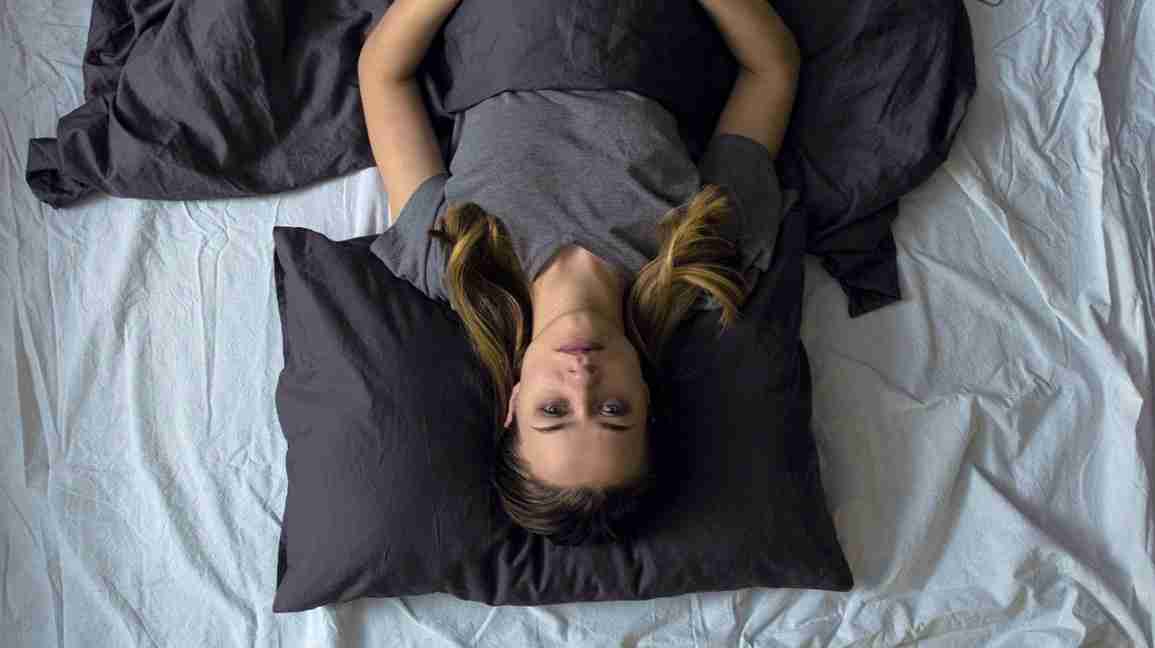It always happens at night.
The lights go out and my mind spins. It replays all the things I said that didn’t come out the way I meant. All the interactions that didn’t go the way I intended. It bombards me with intrusive thoughts — horrific videos that I can’t turn away from, playing over and over in my head.
It beats me up for mistakes I’ve made and tortures me with worries I can’t escape.
What if, what if, what if?
I’ll sometimes be up for hours, the hamster wheel of my mind refusing to relent.
And when my anxiety is at its worst, it often follows me even into my dreams. Dark, twisted images that seem haunting and all too real, resulting in restless sleep and night sweats that serve as further proof of my panic.
None of it’s fun — but it’s also not entirely unfamiliar. I’ve been dealing with anxiety since my tween years and it’s always been the worst at night.
When the lights are out, the world is quiet, and there are no more distractions to be found.
Living in a cannabis-legal state helps. On the nights that are the worst, I reach for my high-CBD vape pen and that’s usually enough to soothe my racing heart. But before legalization in Alaska, those nights were mine and mine alone to get through.
I would have paid anything — given everything — for a chance to escape them.
Understanding what’s happening
I’m not alone in this, according to clinical psychologist Elaine Ducharme. “In our society, individuals spend billions of dollars to rid themselves of anxiety,” she tells Healthcare Website.
She explains that the symptoms of anxiety, though, can often be life-saving. “They keep us alert to danger and assure survival.” She’s talking about the fact that anxiety is basically our body’s fight or flight reaction — in practice, of course.
“The problem for those suffering [from] anxiety is that usually there is no need for the anxiety. The physical danger is not real and there is no need to fight or flee.”
And that’s my problem. My worries are rarely life and death. And yet, they keep me up at night all the same.
Licensed mental health counselor Nicky Treadway explains that, during the day, most people with anxiety are distracted and task-focused. “They’re feeling the symptoms of anxiety, but they have better places to land them, moving from point A to B to C throughout the day.”
This is how I live my life: keeping my plate so full that I don’t have time to dwell. As long as I have something else to focus on, the anxiety seems manageable.
But when thenighttime anxiety sets in, Treadway explains that the body is shifting into its natural circadian rhythm.
“The light is going down, the melatonin production in the body is going up, and our body is telling us to rest,” she says. “But for someone who has anxiety, leaving that place of hyperarousal is difficult. So their body is kind of fighting that circadian rhythm.”
Ducharme says that panic attacks occur with the greatest frequency between 1:30 and 3:30 a.m. “At night, things are frequently quieter. There is less stimulation for distraction and more opportunity for worry.”
She adds that we may have no control over any of these things, and they’re often made worse by the fact that help is less available at night.
After all, who are you supposed to call at 1 in the morning when your brain is putting you through a marathon of worries?
The worst of it
In the darkest moments of night, I convince myself that everyone I love hates me. That I’m a failure at my job, at parenting, at life. I tell myself that everyone who’s ever hurt me, or left me, or spoken ill about me in any way was absolutely in the right.
I deserved it. I’m not enough. I never will be.
This is what my mind does to me.
I see a therapist. I take meds. I try hard to get enough sleep, to exercise, to eat well, and to do all the other things that I’ve found help keep the anxiety at bay. And most of the time, it works — or at least, it works better than doing nothing at all.
But the anxiety is still there, lingering on the edge, waiting for some life event to occur so that it can seep in and make me question everything I’ve ever known about myself.
And the anxiety knows it’s at night when I’m most vulnerable.
Fighting the demons
Ducharme cautions against using marijuana as I do in those darkest moments.
“Marijuana is a tricky issue,” she explains. “Though there is some evidence that marijuana can relieve anxiety in the short term, it is not recommended as a long-term solution. Some people actually become more anxious on pot and may develop paranoid symptoms.”
For me, that isn’t issue — perhaps because I don’t rely on marijuana on a nightly basis. It’s only those few times a month when my regular meds just aren’t doing the trick and I need sleep.
But to avoid having those nights altogether, Treadway suggests developing a sleep routine that can help with the transition from day to night.
This might include taking a 15-minute shower every night, using lavender essential oils, journaling, and meditating. “That way we’re more likely to shift into sleep, and to have better quality sleep.”
I’ll admit, this is an area I could improve. As a self-employed freelance writer, my bedtime routine often includes working until I feel too tired to type another word — and then shutting the lights off and leaving myself alone with my broken thoughts.
But after over two decades of dealing with anxiety, I also know she’s right.
The harder I work to take care of myself and stick to routines that help me relax, the easier my anxiety — even my nighttime anxiety — is to manage.
There is help
And perhaps that’s the point. I’ve come to accept that anxiety will always be a part of my life, but I also know there are things I can do to help keep it under control, which is something Ducharme is passionate about making sure others are aware of.
“People need to know that anxiety disorders are highly treatable,” she says. “Many respond very well to treatment with CBT techniques and medication, learning to stay in the moment — not in the past or future — even without meds. Others may need meds to calm themselves enough to learn and benefit from CBT techniques.”
But either way, she explains, there are methods and medications available that can help.
As for me, even though I’ve committed 10 years of my life to extensive therapy, there are some things that are ultimately really difficult to escape. That’s why I try my hardest to be kind to myself — even to the part of my brain that sometimes likes to torture me.
Because I am enough. I am strong and confident and capable. I am a loving mother, a successful writer, and a devoted friend.
And I am equipped to deal with any challenge that comes my way.
No matter what my nighttime brain tries to tell me.
For the record, you are too. But if your anxiety is keeping you up at night, talk to a doctor or therapist. You deserve to find relief, and there are options available to achieve that.


